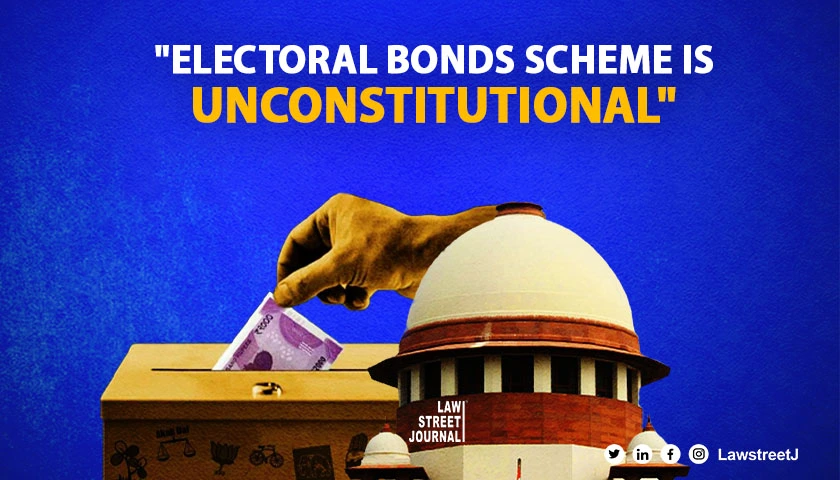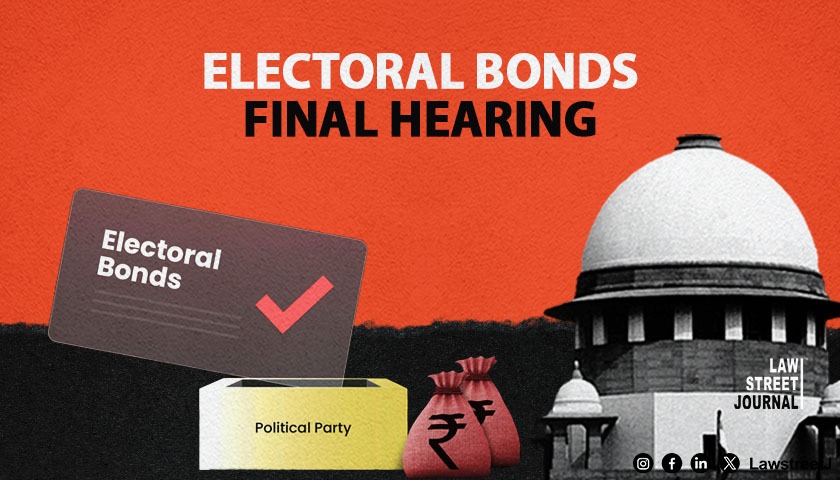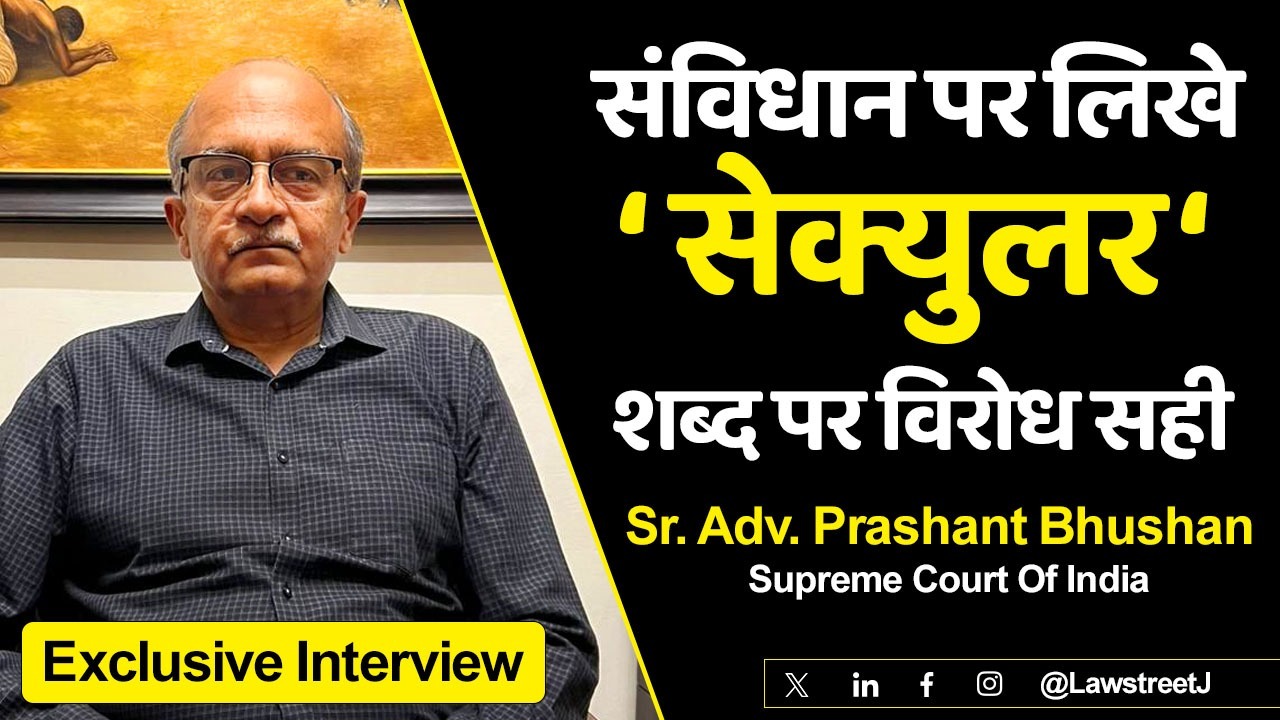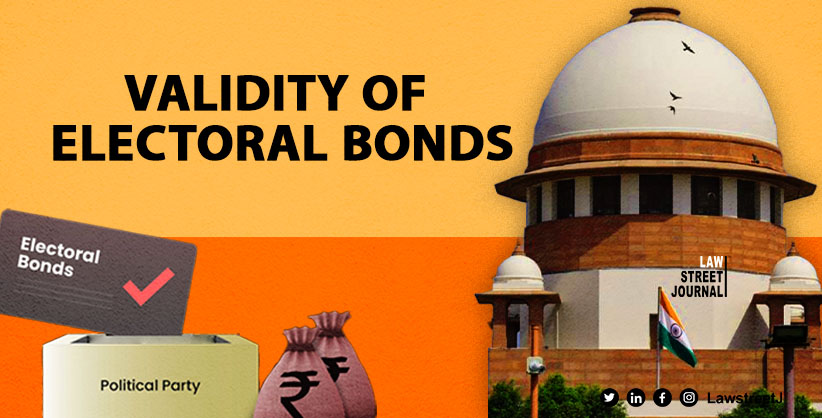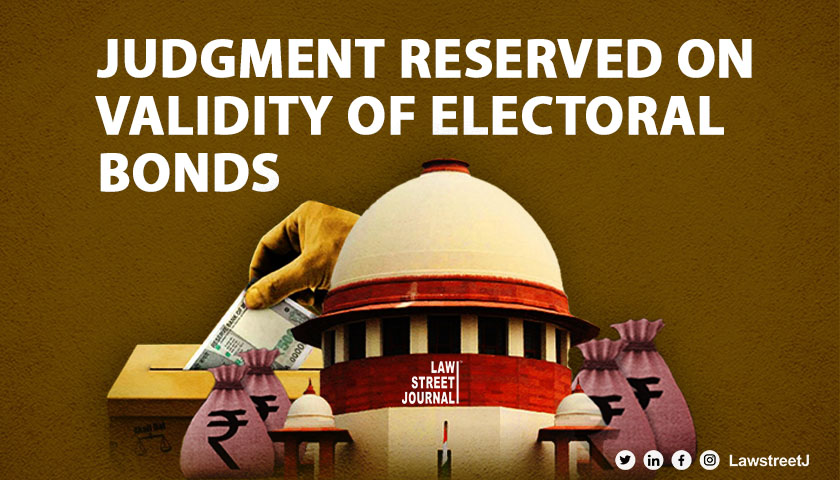New Delhi: The Supreme Court on Thursday pronounced its verdict on a batch of petitions challenging the validity of the Electoral Bond scheme, which allows for anonymous funding to political parties.
While delivering its judgement on several pleas challenging the validity of these instruments, the apex court said electoral bonds are violative of the Right to Information and Right to Freedom of Speech and Expression and need to be struck down as unconstitutional,
A five-judge Constitution bench headed by Chief Justice D Y Chandrachud had on November 2 last year reserved its verdict in the matter. The Supreme court has striked down the electoral bonds scheme by terming it unconstitutional.
What are electoral bonds?
Electoral bonds are instruments/securities that are used to donate funds to political parties. Electoral Bonds may be purchased by a person who is a citizen of India or incorporated or established in India.
The bonds can be purchased through a KYC-complaint account to make donations to a political party. Once the money is transferred, the political parties will have to encash the donations within a given amount of time.
What is Electoral bonds scheme
The electoral bonds scheme was first announced by former finance minister Arun Jaitley during the 2017 Budget Session. Later, it was notified in January 2018 as a source of political funding by way of money bills introducing amendments to the Finance Act and the Representation of the People Act. In order to implement the scheme, the Centre carried out certain amendments to the Companies Act, Income Tax Act Foreign Contribution Regulation Act (FCRA), and the Reserve Bank of India Act.
What is Electoral bonds scheme case
Stating that the scheme violates the right to information, opens doors to shell companies, and promotes corruption, several petitions were filed in the Supreme Court, including those filed by CPI(M), Congress, and some NGOs, against the constitutional validity of the electoral bonds scheme. The hearing into this matter began on October 31 last year.
Listen in to why Prashant Bhushan, a lawyer representing one of the petitioners said that the scheme is dangerous for democracy.
Why did Supreme Court strike down electoral bonds scheme?
- SC said Electoral bond scheme is violative of freedom of speech and expression under Article 19(1)(a) of Constitution.
- "A company has more graver influence on the political process than contributions by individuals. Contributions by companies are purely business transactions. Amendment to Section 182 Companies Act is manifestly arbitrary for treating companies and individuals alike."
- "Electoral bonds scheme is not the only scheme to curb black money. There are other alternatives."
To get more legal updates follow our What's App group
The Chief Justice of India DY Chandrachud, Justices Sanjiv Khanna, BR Gavai, JB Pardiwala and Manoj Misra pronounced the judgment on the validity of the electoral bonds.

